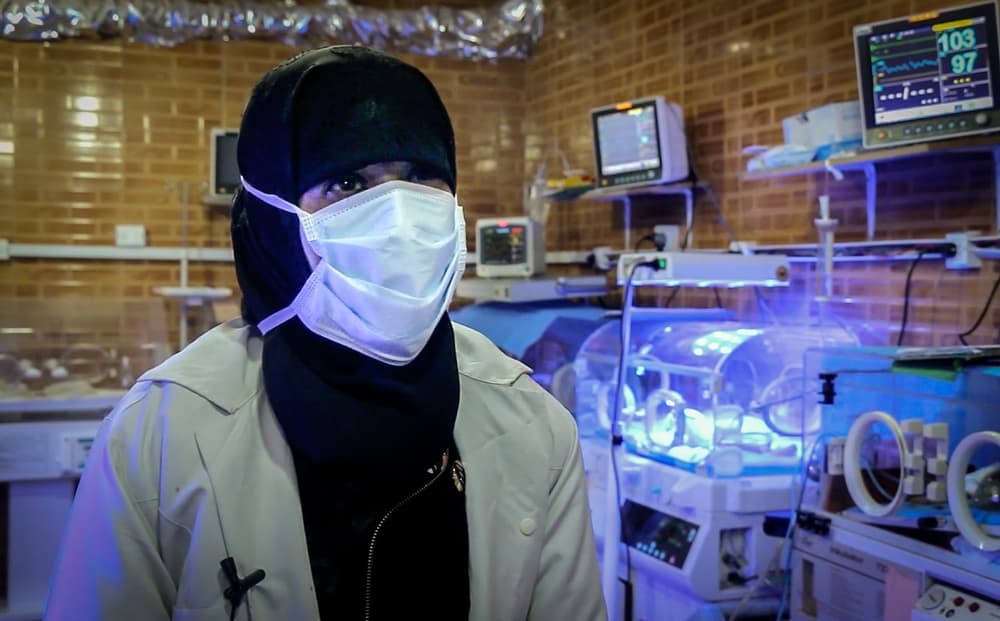Many of the people trapped in east Aleppo are under 18. The three-month-long siege and weeks of bombing and ground fighting have had a devastating impact on their health
“Sometimes they have to wait all night long and when they do arrive, it is too late or it has been too damaging for the children,” says Aya, a neonatal nurse who prefers not to give her second name.
Patients in east Aleppo generally stay for as short a time as possible in hospitals, which are known as dangerous places to be – the area’s hospitals have been hit by bombs in 26 separate incidents during the three-month-long siege. The pressure on medical staff and on hospital beds also contributes to patients spending less time in hospital than they may need, with sometimes tragic consequences. “Premature babies can need a long period in the intensive care unit before they are ready to leave, but as the time is not available, we are losing many of them,” says Najjar.
Under the siege, medicines are being rationed, and in some cases running out. “Here in the neonatal ward, and also in emergency rooms, many children die because there are no medicines available for them,” says Aya.

Meanwhile, children with less urgent medical problems are being neglected. Given the hundreds of people wounded in airstrikes over recent weeks, general paediatric care is simply not a priority, say medical staff in one of the hospitals supported by MSF.
After so many years of war, vaccination coverage is patchy and children’s immune systems are low, raising the risk of outbreaks of preventable diseases such as measles, meningitis and polio. There are suspected cases of all three diseases in east Aleppo, but they cannot be confirmed, as samples can no longer be sent out of the city to a laboratory.
At the same time, there are shortages of many types of food, including meat, dairy products fresh fruit and vegetables, and formula milk for babies.
“There is a serious lack of food for children, including formula milk,” says Al Motassem. “Some mothers aren’t able to breastfeed, other children have lost their mothers. People can’t find formula milk, so babies are often given normal food at home, and this leads to acute malnutrition, and the parents don’t know why.” Malnourished children are more vulnerable to other diseases, increasing the chances of their becoming sick.
Life for the children trapped in east Aleppo gets riskier with each day that goes by.
MSF supports eight hospitals in east Aleppo, only seven of which are currently functioning. We run six medical facilities across northern Syria and support more than 150 hospitals and health centres across the country, many of them in besieged areas. Despite our best efforts, there are many areas – including west Aleppo – where we are currently unable to work, but we continue to push to provide humanitarian and medical aid in these areas.











